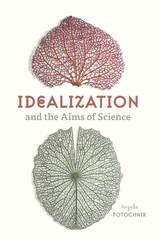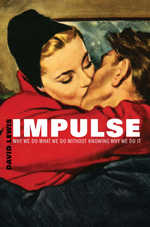4 start with I start with I

Idealization and the Aims of Science shows just how crucial idealization is to science and why it matters. Beginning with the acknowledgment of our status as limited human agents trying to make sense of an exceedingly complex world, Angela Potochnik moves on to explain how science aims to depict and make use of causal patterns—a project that makes essential use of idealization. She offers case studies from a number of branches of science to demonstrate the ubiquity of idealization, shows how causal patterns are used to develop scientific explanations, and describes how the necessarily imperfect connection between science and truth leads to researchers’ values influencing their findings. The resulting book is a tour de force, a synthesis of the study of idealization that also offers countless new insights and avenues for future exploration.

A radical rethinking of the theory and the experience of mental images
Here, in English translation for the first time, is Gilbert Simondon’s fundamental reconception of the mental image and the theory of imagination and invention. Drawing on a vast range of mid-twentieth-century theoretical resources—from experimental psychology, cybernetics, and ethology to the phenomenological reflections of Sartre and Merleau-Ponty—Imagination and Invention provides a comprehensive account of the mental image and adds a vital new dimension to the theory of psychical individuation in Simondon’s earlier, highly influential work.
Simondon traces the development of the mental image through four phases: first a bundle of motor anticipations, the image becomes a cognitive system that mediates the organism’s relation to its milieu, then a symbolic and abstract integration of motor and affective experience to, finally, invention, a solution to a problem of life that requires the externalization of the mental image and the creation of a technical object. An image cannot be understood from the perspective of one phase alone, he argues, but only within the trajectory of its progressive metamorphosis.

“It seemed like a good idea at the time” has been the limp excuse of many a person whose actions later became cause for regret. Although we see ourselves as rational beings, we are far more likely to act according to impulse than logic. Nor is this always a bad thing, David Lewis suggests. Impulse explores all the mystifying things people do despite knowing better, from blurting out indiscretions to falling for totally incompatible romantic partners. Informed by the latest research in neuropsychology, this eye-opening account explains why snap decisions so often govern—and occasionally enrich—our lives.
Lewis investigates two kinds of thinking that occur in the brain: one slow and reflective, the other fast but prone to error. In ways we cannot control, our mental tracks switch from the first type to the second, resulting in impulsive actions. This happens in that instant when the eyes of lovers meet, when the hand reaches for a must-have product that the pocketbook can’t afford, when “I really shouldn’t” have another drink becomes “Oh why not?” In these moments, our rational awareness takes a back seat.
While we inevitably lose self-control on occasion, Lewis says, this can also be desirable, leading to experiences we cherish but would certainly miss if we were always logical. Less about the ideal reasoning we fail to use than the flawed reasoning we manage to get by with, Impulse proves there is more to a healthy mental life than being as coolly calculating as possible.

“A remarkable book. Whether you are an educator, parent, or simply a curious reader, you will come to see, hear, and understand children in new ways.”
—Howard Gardner, author of Multiple Intelligences
Adults easily recognize children’s imagination at work as they play. Yet most of us know little about what really goes on inside their heads as they encounter the problems and complexities of the world around them. Susan Engel brings together an extraordinary body of research to explain how toddlers, preschoolers, and elementary-aged children think.
A young girl’s bug collection reveals how children ask questions and organize information. Watching a boy scoop mud illuminates the process of invention. When a child ponders the mystery of death, we witness how ideas are built. But adults shouldn’t just stand around watching. When parents are creative, it can rub off. Engel shows how parents and teachers can stimulate children’s curiosity by presenting them with mysteries to solve, feeding their sense of mastery and nourishing their natural hunger to learn.
“A fascinating read for parents who wonder, simply, what is my child thinking? Why do they love collecting? Where did that idea come from? A celebration of children’s innovation and sense of wonder.”
—Emily Oster, author of Expecting Better
“Combining insight, scientific acumen, and exquisite narrative, The Intellectual Lives of Children allows readers to peer into the minds of infants, toddlers, and preschoolers as they explore and learn in everyday moments, emphasizing what constitutes real learning.”
—Kathy Hirsh-Pasek, Science
READERS
Browse our collection.
PUBLISHERS
See BiblioVault's publisher services.
STUDENT SERVICES
Files for college accessibility offices.
UChicago Accessibility Resources
home | accessibility | search | about | contact us
BiblioVault ® 2001 - 2024
The University of Chicago Press









